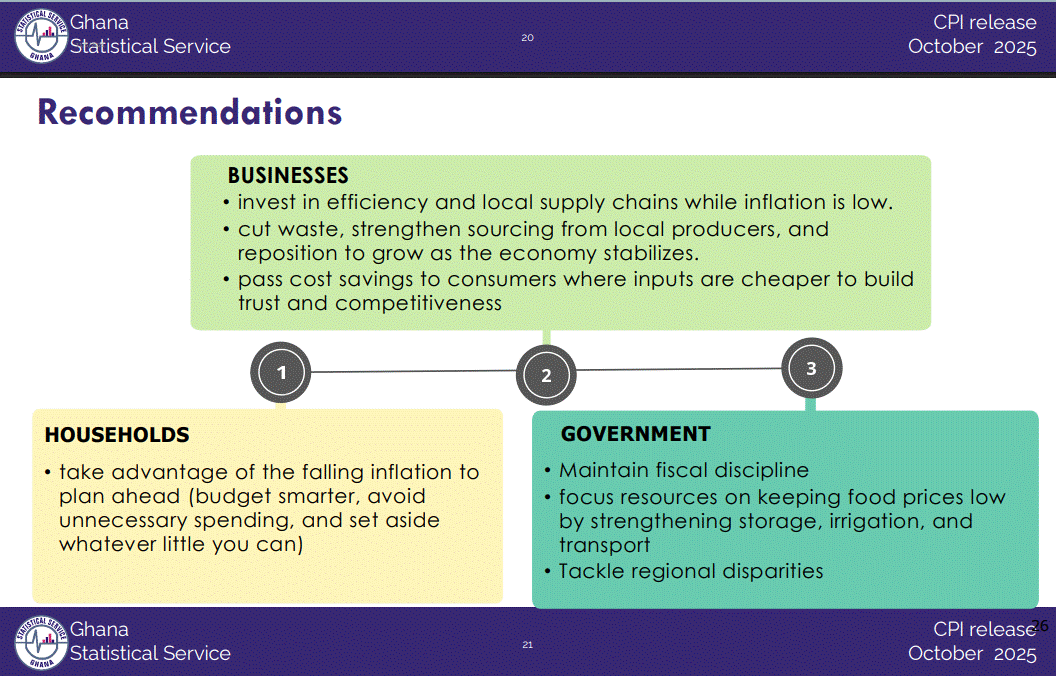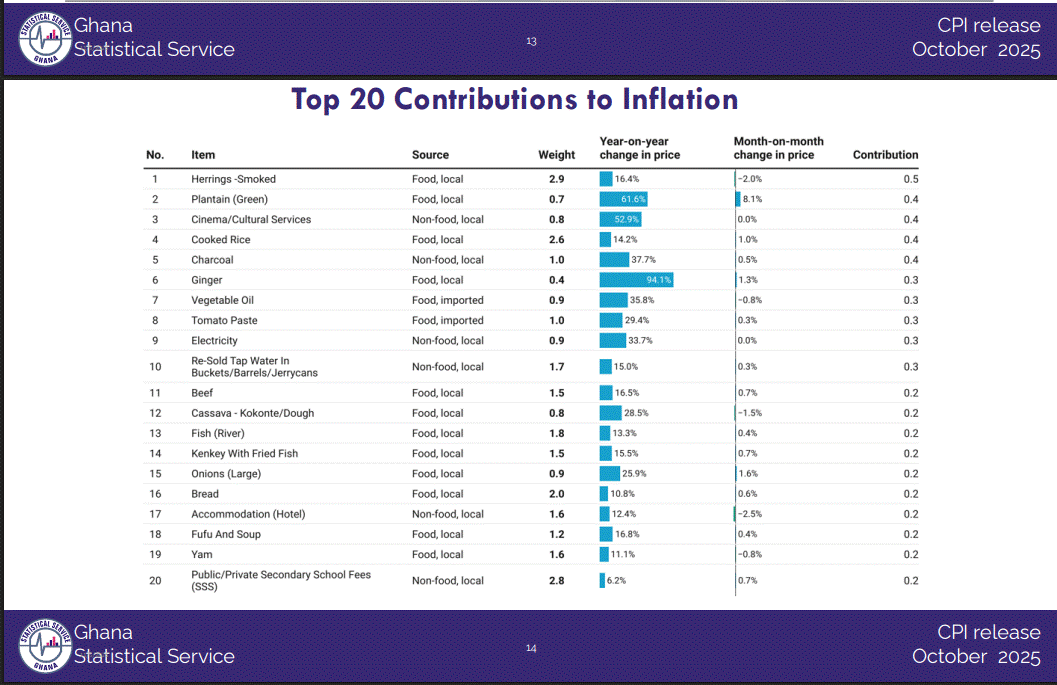With Ghana’s economy showing signs of recovery, the Ghana Statistical Service is encouraging government to invest in measures that keep food affordable for citizens.
The agency also warned that maintaining fiscal discipline will be key to long-term stability.
“Maintain fiscal discipline, focus resources on keeping food prices low by strengthening storage, irrigation, and transport; also tackle regional disparities in inflation,” Dr. Alhassan Iddrisu, the Government Statistician stated.
The Ghana Statistical Service has encouraged businesses to become more efficient and support local industries by cutting waste and sourcing within Ghana. It further appealed to companies to reflect cost reductions in their pricing to ease pressure on consumers and foster greater market confidence.

Ghana’s inflation continued its downward trajectory in October, reaching 8% — the lowest since 2021 and a sharp drop from 23.8% in December 2024.
Addressing journalists in Accra on November 5, Government Statistician Dr. Alhassan Iddrisu noted that the fall marks ten consecutive months of easing inflation, driven largely by declines in food and goods prices.
Food inflation dropped to 9.5% in October from 11.0% in September, with food prices decreasing 1.0% month-to-month. Non-food inflation slowed to 6.9% from 8.2%. Goods inflation fell sharply to 9.3%, while services inflation eased slightly to 4.6%.
With goods comprising nearly three-quarters of the CPI basket, the slowdown signals broad-based consumer relief and improved price stability amid Ghana’s ongoing economic rebound.
Dr. Alhassan Iddrisu, Government Statistician, says inflation remains uneven across Ghana despite the national rate dropping to 8% in October. The North East Region recorded the highest inflation at 17.3%, while Bono East saw the lowest at 1.1%.

He attributed the differences to factors such as local food supply, transportation costs, and access to markets.
Top contributors to October’s inflation included smoked herrings, green plantain, cooked rice, charcoal, ginger, tomato paste, vegetable oil, electricity, re-sold tap water, beef, cassava, fish, kenkey, onions, bread, hotel accommodation, fufu and soup, yam, and secondary school fees.






